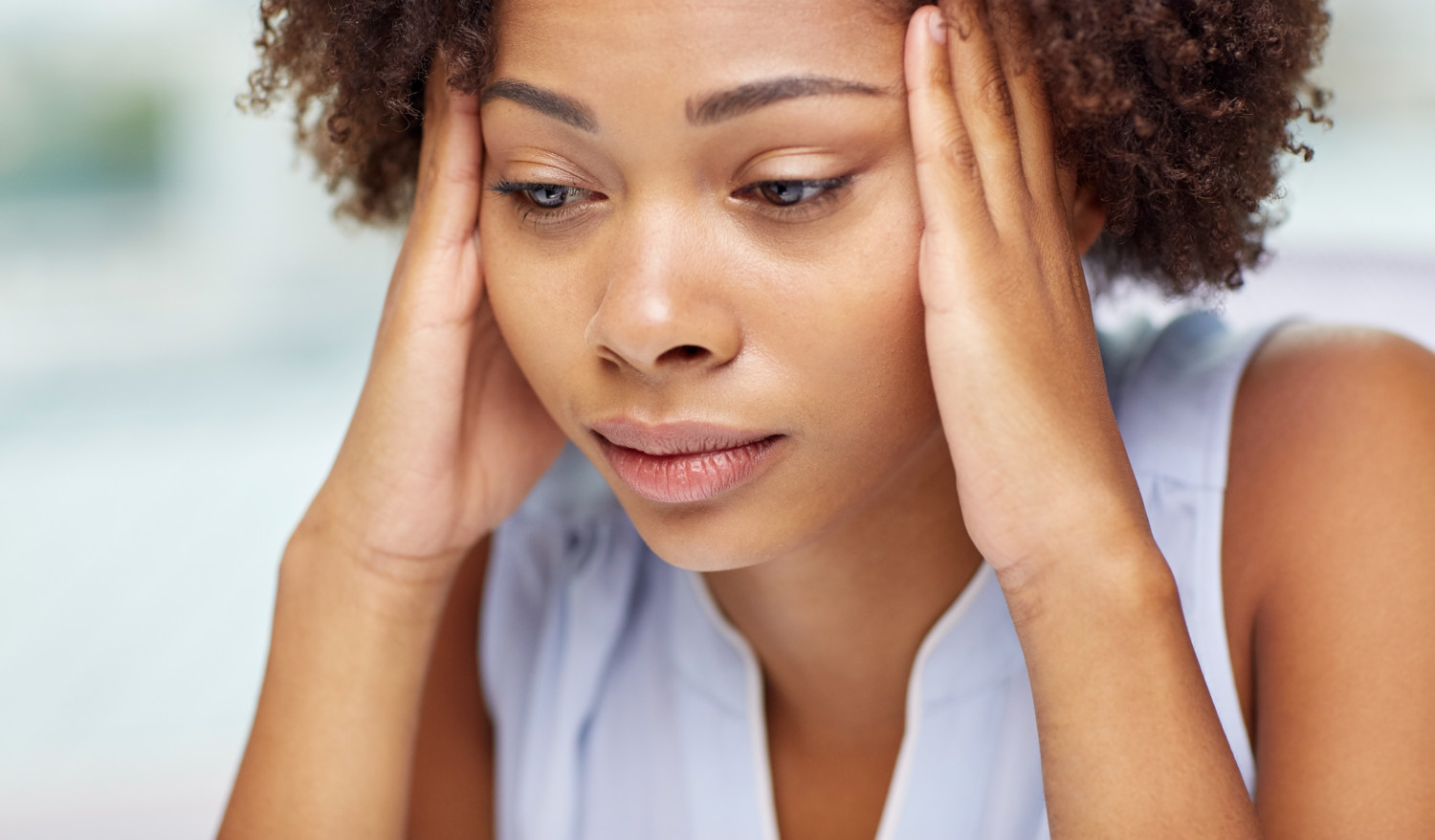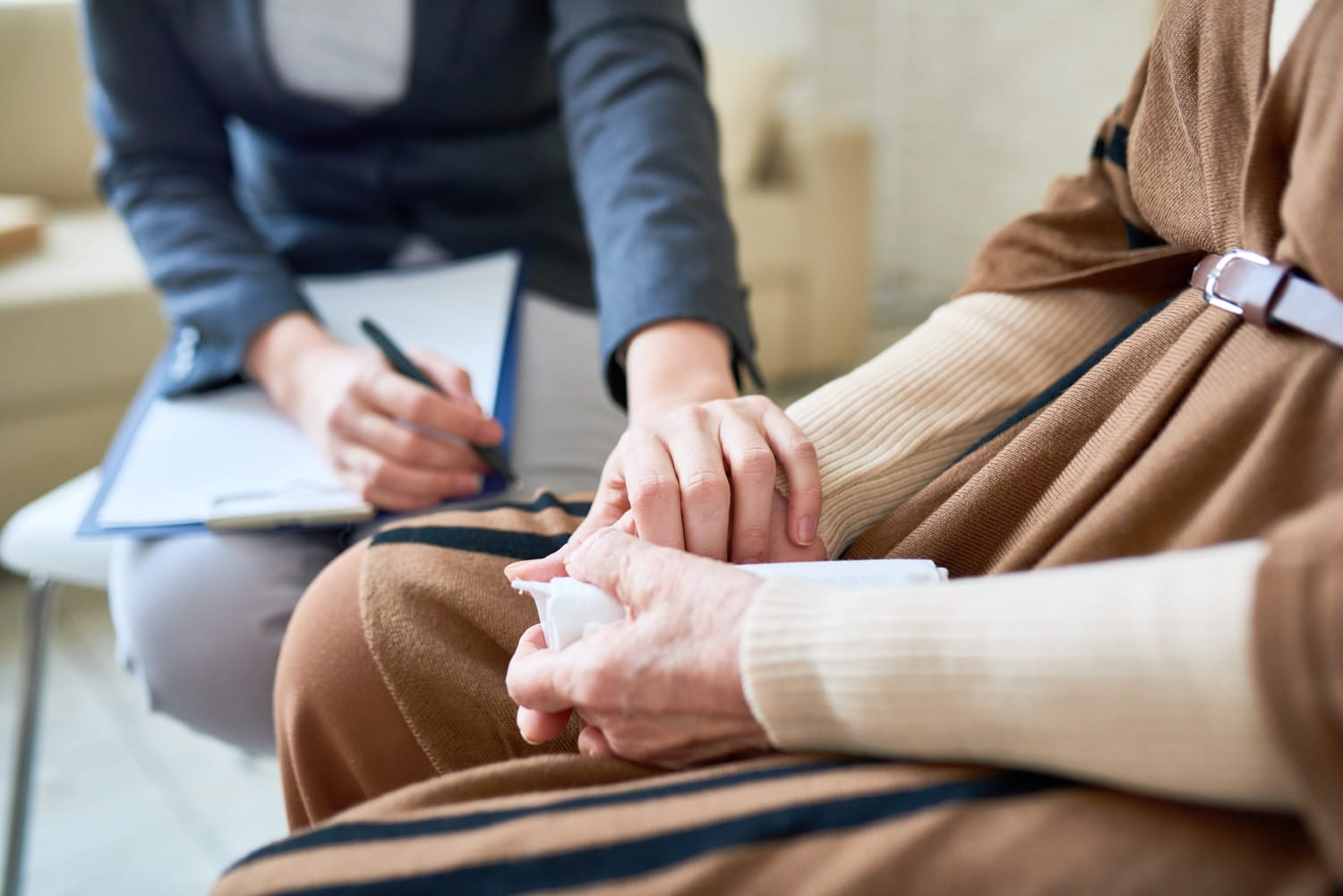Grief affects your mind and body — here’s how

We know grief can put us through a rollercoaster of emotions. The Kubler-Ross model (or, as it’s more widely known, “the five stages of grief”) describes a cycle of denial, anger, bargaining, depression and acceptance. But what about the ways in which grief affects us physically? After the death of a loved one, or even after the loss of a relationship, can grief manifest itself with physical symptoms as well as psychological ones?
Absolutely, say experts. And it’s important to be especially kind to yourself when these symptoms manifest.
Scientists have been able to trace grief to specific areas in the brain through brain imaging, explains Sal Raichbach, Psy.D., of Ambrosia Treatment Center. He explains that the relationship between the amygdala and the frontal lobe, which is responsible for emotion and stress response, is activated during the grieving process.
While grief may be a universal response to loss, how individuals experience the symptoms of grief is likely to vary. Here, physicians, mental health professionals and grief experts explain how grieving tends to affect our minds and bodies, and how we can cope.
What Are The Common Symptoms Of Grief?
Psychological and physical symptoms of grief can be all-encompassing, and grief can disrupt our normal way of functioning, explains Catherine Burnette, Ph.D., an assistant professor in the School of Social Work at Tulane University who specializes in mental health.
“There is no one way that grief manifests itself,” she says. “Just as people may express anger or frustration differently, grief is very individual as to when and how it surfaces.”
Some psychological symptoms, according to Burnette, can include the following:
- Difficulty concentrating
- Irritability
- Sadness
- Numbness
- Anger
- Anxiety
- Disorientation because of the rapid change in life circumstances
Common physical symptoms, Burnette says, can include the following:
- Extreme exhaustion
- Headaches
- Getting sick
- Not being able to eat or sleep normally
Your body can definitely suffer during the grieving process, explains author and grief expert Heather Stang, who has a master’s degree in thanatology, which is the study of death, dying and bereavement. People who are grieving often report feeling tension in their chest, muscles and throat, as well as joint pain, shortness of breath, exhaustion, nausea, muscle weakness, dry mouth and clumsiness, Stang says.
Scientists studying the impact of bereavement on people’s health have found that the chances of a heart attack or stroke doubles after a partner’s death. Researchers believe this to be an adverse physiological response to serious grief.
Why Does Grief Affect Us This Way?
The short answer? Grief interrupts our normal brain functioning, and our brain is in charge of sending signals to the rest of our body.
Grief can cause changes in brain chemicals like dopamine and serotonin, says Dr. Richard Honaker, M.D., chief medical officer of Your Doctors Online.
“These chemicals work in a fine balance to keep our moods and functioning smooth,” Honaker says. “Grief throws them out of balance.”
Grief affects our limbic system, which is the system of nerves and networks in the brain, as well as the pre-frontal cortex, Burnette explains. This can throw off how we regulate our emotions, our concentration levels, our ability to multi-task and our memory function. Hormonal changes can also affect eating and sleep patterns, and can cause anxiety and restlessness, Burnette explains, which—as you can imagine—can drastically affect how you feel.
While, in almost all scenarios, mourning the loss of a loved one involves the same parts of the brain from person to person, biology is only one piece of the equation, says Raichbach. People deal with emotional stress differently and have various coping mechanisms.
How Long Do Symptoms Last?
Because grief is so personal, this is a tough question to address. According to Burnette, one person may feel grief immediately, while others feel grief in waves over time, and others may experience delayed grief. It’s important to realize that this is normal and to seek help and support to recover and heal through the grieving process.
“Grief doesn’t operate under a certain timetable and affects people in differing ways and to different extents,” Burnette says. “Typically grief does lift over time, and this is achieved through experiencing emotions and working through to the other side.”
Grief does tend to return in waves, around birthdays, anniversaries or when we’re in a place that reminds us of a lost loved one, Burnette says.
“When grief doesn’t lift and gets in the way of day-to-day functioning, it is important to seek support,” she says.
What Can You Do To Alleviate The Effects Of Grief?
Self-care is incredibly important when it comes to alleviating the mental and physical effects of grief, Burnette says. This might include reaching out to supportive loved ones or even going to a support group or getting therapy. Exercising, getting enough sleep and eating well can also be helpful.
Burnette says it’s also important to take time to heal, use positive self-talk and take part in meaningful activities and hobbies.
What types of symptoms have you experienced while grieving, and were there any self-care steps you took to manage your grief?








